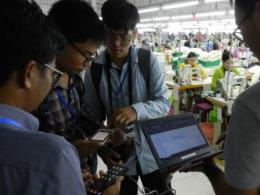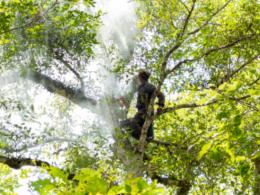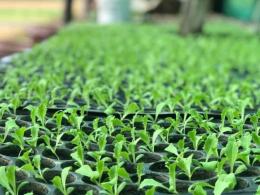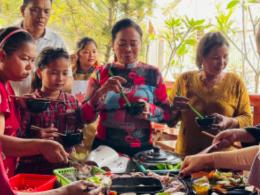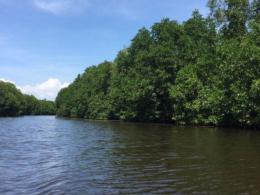Ecological Intensification and Soil Ecosystem Functioning (EISOFUN)
Background
Intensive mono-cropping mainly for cassava and maize productions, based on tillage and herbicide use has resulted in significant soil fertility depletion and land degradation. Productivity and profitability decreased since several years and land use intensification in the uplands is also characterized by increasing debts as a result of the high capital requirement of intensive cropping practices. Climate change is expected to increase the frequency of drought and floods with dramatic consequences on annual cash crops that are crucial for smallholders’ livelihoods in the uplands. In a general context of labor scarcity, resources-rich farmers cope with these risks by shifting from annual crops to perennial crops. Poorest farmers who cannot afford such strategies may further fall into the poverty trap by selling out their land to the other farmer groups to become wage-earners on their former land.
Overall Objective
Promote Sustainable Management of Agricultural Land Resources
Expected Results
- Smallholders and development stakeholders are aware about the negative environmental impacts of conventional agriculture, the limitations it imposes on rural development, and the need for alternatives
- Partners’ knowledge about soil ecosystem services assessment has been improved and leads to further research
- Strategic elements are provided to national policy makers to address soil fertility depletion
Location
Kampong Cham and Battambang
Approach
EISOFUN will work with and through Cambodian institutions to increase national capacity to assess the impacts of land use changes on soil fertility and productivity.
Key ecosystem services will be assessed on two main agro-ecosystems (Oxisol and Mollisol) comparing conventional plough-based tillage and Conservation Agriculture Production Systems (CAPS) in the Bos Khnor Station, Kampong Cham and in Rattanak Mondoul district, Battambang. The indicators will be recorded: (i) on two experiments in the Bos Khnor Station and on at least 3 cropping systems (i.e. conventional plough-based and two CAPS), (ii) on one demonstration field in Rattanak Mondoul (i.e. comparison Conventional Tillage vs. Conservation Agriculture), and (iii) on-farm through a network of 30 fields in Rattanak Mondoul district. The project will provide strategic elements to national policy makers on alternative land use management to address the question of soil fertility through sensitization activities (policy briefs, leaflet) and workshop.
Achievements to date
- Exchanges with rural communities and smallholders
- Training of the partners through seminar and working sessions
- Training of the partners on the assessment of key ecosystem services
- Assessing soil ecosystem services
- Soil sampling in Bos Khnor Station and Battambang
- Policy briefs, publications, leaflet, and posters developed
- Policy dialogue: final workshop with policy-makers, GSSD and CCCA


